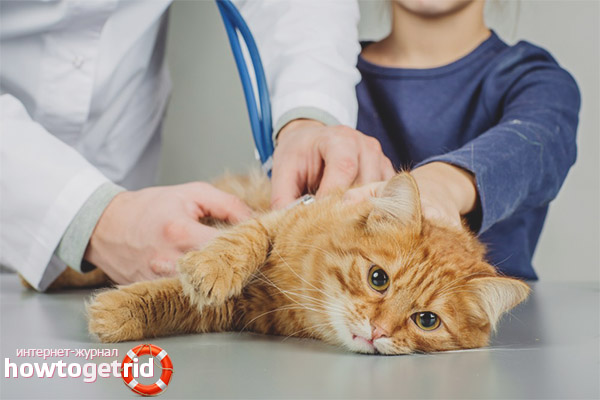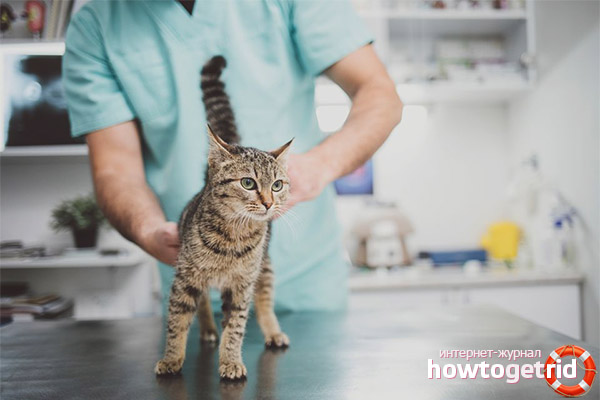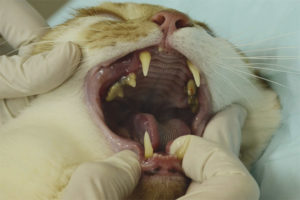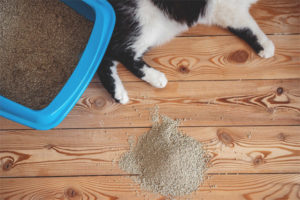The content of the article
Owners of feline family members often face the problem of inappropriate pet behavior during estrus. Delivered discomfort makes the owners think about the issue of possible sterilization.
Sterilization, like any other surgical intervention, is a stress not only for the pet, but also for the owner. Veterinarians of international clinics have long come to the conclusion that a sterilization procedure is necessary if, for whatever reason, the cat is not involved in breeding. It is believed that this operation will favorably affect the longevity of the pet, since the risk of hormonal imbalance and purulent inflammation of the genital organs becomes minimal.
When is it better to sterilize a cat?
Not everyone understands that sterilization and castration are not the same thing. In medicine, sterilization is understood to mean the elimination of fertility by ligation of the fallopian tubes. The sexual instincts of the pet after the operation are saved.
Castration is a more serious surgical intervention, in which a complete removal of the uterus and ovaries is performed. The attraction of the pet to the opposite sex after the operation is forever lost. The sterilization method is much less effective, so veterinarians often use castration. Both females and males undergo this operation. But only in the people these concepts are often confused, mistakenly calling castration sterilization, so we will be guided by generally accepted terminology.
Due to individual characteristics, puberty in each animal occurs at different ages. Therefore, it is recommended to sterilize a cat aged from six months to a year.
If a cat previously participated in breeding, then sterilization can be carried out at 5-7 years of age. It is extremely rare for veterinarians to sterilize cats when they are not yet 6 months old. However, at this age, there is a risk of complications (for example, developmental delay).
Reasons for sterilization at an early age:
- The consequences of anesthesia the young animal tolerates more easily, quickly returning to his usual life.
- The psychological state of a cat who has not experienced sexual desire before is more relaxed.
- The risk of developing malignant tumors of the reproductive organs, mastitis and other genitourinary diseases is significantly reduced.
- The animal is insured against infection with sexually transmitted infections, such as, for example, chlamydia.
Prolonged abstinence can be harmful to a cat’s health. It should be understood that hormonal contraception causes an imbalance in the hormonal background of the animal, which can provoke purulent inflammation of the uterus and ovaries.
Fact! About 70% of cat diseases are based on diseases of the urogenital organs. It is necessary to take care of the pet in advance, reducing the potential risk.
If there is a need for sterilization of an elderly cat, it is necessary to check the health of the heart, and pass tests. Thus, the health of the pet will not be threatened.
Cat sterilization during estrus
Opinions of experts on sterilization during estrus differ.
There is a theory according to which it is forbidden to conduct this operation in this time period. And there are a number of arguments for this:
- During estrus, blood flow to the uterus increases significantly. The uterus becomes larger in size, which will make its removal more difficult. At first glance, this reason to postpone castration time is justified.But an experienced specialist does not care about the size of the removed organ. In rare cases, the procedure is carried out even during pregnancy, if the pet’s life is at risk.
- The risk of hormonal failure. Removal of the ovaries can cause hormonal failure, but the balance of hormones in the body is gradually restored with the help of other organs (thyroid gland, adrenal glands, pituitary gland).
- Psychological factors. During estrus, the cat requires attention from the cat, subject to natural instincts. Some suggest that after castration at this time, these instincts will persist. But you need to understand that the needs of a cat are provoked by hormonal changes occurring in the body. And if their source is removed, a balanced state will return to the cat.
An operation carried out during estrus will cause increased bleeding, the animal will move longer from the state of anesthesia, and the healing period of the stitches will be longer.
It is preferable to carry out the operation before the onset of the first estrus, but if the moment is missed, the next period favorable for the procedure will come 1-2 weeks after the end of increased sexual hunting. With all this, it should be borne in mind that the use of hormonal contraceptives for an animal is much more dangerous than sterilization.
In any case, before making a decision, you need to check the general health of the pet. It is unacceptable to create excess loads for a sickly cat.
What is the danger of sterilization during estrus
The danger of surgical contraception for the animal is small. Sterilization is a simple operation, which for healthy animals can be carried out in any life period. However, you need to make sure that the cat does not have allergic reactions to the medicinal components used during the operation.
Many veterinary clinics promote the laparoscopic sterilization method. He is the most sparing.
The operation takes about 15-20 minutes and does not require special preparation. The risk of increased blood loss, as well as a long stay of the pet under anesthesia is reduced to zero. There is no need to use antibiotic drugs after sterilization.
When to sterilize after estrus
The sterilization procedure should not cause concern. Such surgical intervention will make life easier for the cat and its owners. And diseases associated with the genitourinary system will bypass the pet side.
Postoperative period
With proper care, the cat will recover from anesthesia for several days after surgery. The effect of anesthesia will not harm the body if the dosage has been calculated correctly.
A sterilized cat becomes less aggressive, stops marking and tearing furniture, it makes better contact and can be trained. The pet's appetite is increasing, so it is important to introduce specialized premium food for sterilized cats into the diet to prevent weight gain. It is important to be attentive to the cat and monitor its balanced diet.
Video: cat sterilization and castration - pros and cons











Submit